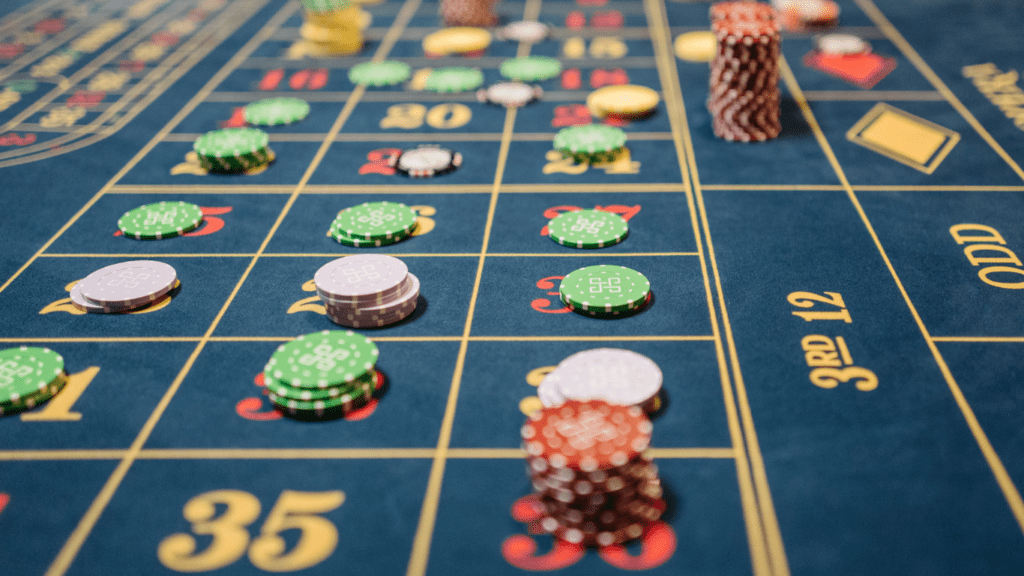Common Gambling Myths
Misconceptions about gambling often lead players astray. Understanding these myths improves decision-making and gaming success.
Myth 1: Gambling Systems Guarantee Wins
Believing in foolproof systems leads many gamblers to disappointment. No system beats the randomness of games. For instance, the Martingale strategy—doubling bets to recover losses—can quickly deplete funds without providing a real advantage. Recognizing randomness helps manage expectations and bankrolls effectively.
Myth 2: Past Outcomes Affect Future Results
Some players believe previous results influence future ones. In reality, each game outcome remains independent. For example, on a roulette wheel, the odds for each spin stay constant regardless of past spins. Acknowledging this independence prevents false patterns, keeping strategies reliant on actual odds.
Myth 3: Casinos Are Rigged to Ensure Losses
Many suspect casinos manipulate games against players. While it’s true that casinos hold a house edge, games must comply with regulatory standards to ensure fairness. Government bodies, such as the Nevada Gaming Control Board, monitor casinos to maintain honest operations. Understanding this regulation guarantees more transparent expectations.
Psychological Impact of Gambling Myths

Gambling myths can significantly affect a player’s mindset, leading to poor decision-making. Recognizing the mental effects of these misconceptions is key to improving one’s gambling experience.
The Illusion of Control
Players often believe they can influence random outcomes, fostering a false sense of control. This belief leads individuals to engage in superstitious rituals or rely on “lucky” numbers, diverting focus from logical strategies. The illusion can create overconfidence, resulting in riskier bets with no real improvement in odds.
Cognitive Biases and Misconceptions
Gambling myths feed into:
- cognitive biases
- distorting perception
- decision-making
For example, the Gambler’s Fallacy—believing that future events are influenced by past ones—roots itself in the myth that a win is “due.” Such thinking ignores the independence of each gamble and nurtures unrealistic expectations. Misconceptions surrounding streaks and hot hands amplify these biases, further eroding rational judgment.
Financial Consequences
Misunderstanding gambling myths can lead to serious financial setbacks. By believing in unfounded strategies and misconceptions, players can find themselves spiraling into debt.
Chasing Losses and Overbetting
Chasing losses happens when I try to recover my lost bets by wagering more. This desperate attempt to win back money often results in greater financial loss. The myth that luck will eventually turn around encourages overbetting, risking my entire bankroll. Instead of accepting losses as part of gambling, I run the risk of making irrational bets, jeopardizing my financial stability.
The Impact on Personal Finances
- Ignoring the principles of financial management in gambling can harm personal finances.
- Betting beyond my means due to the false hope of “hot streaks” can lead to spending money needed for necessities, such as rent or bills.
- Accumulated debt from credit cards or loans often follows, impacting my credit score and ability to secure future financial options.
- Not acknowledging these financial limits, driven by myths, ultimately threatens my financial health.
Strategies to Avoid Falling for Myths
Understanding gambling myths can significantly improve your chances of making informed choices. By implementing the right strategies, it’s possible to avoid becoming a victim of these misconceptions.
Educating Yourself About Probability
Probability plays a crucial role in gambling. By learning about odds and randomness, I ensure my decisions align with reality, not misconceptions. Exploring resources like books and online courses offers valuable insights into game mechanics. I study the odds of various games to build a foundational understanding, which aids in recognizing when outcomes are random rather than influenced by nonexistent factors.
Setting Realistic Expectations
Holding realistic expectations is key to avoiding disappointment. I acknowledge the inherent unpredictability of gambling, ensuring I remain prepared for wins and losses. By setting boundaries and recognizing that the house edge favors casinos, I maintain a balanced approach. Clear goal-setting helps me focus on entertainment rather than guaranteed profit, reducing the risk of skewed expectations and emotional decision-making.



 _____
Marshane Jacobsin – Digital Tools Developer
Marshane Jacobsin is the tech innovator on the team. She designs and develops intuitive tools that empower gamblers, from calculators to betting trackers. Marshane's expertise ensures that users have access to cutting-edge resources that enhance their gambling strategies while promoting responsible play.
_____
Marshane Jacobsin – Digital Tools Developer
Marshane Jacobsin is the tech innovator on the team. She designs and develops intuitive tools that empower gamblers, from calculators to betting trackers. Marshane's expertise ensures that users have access to cutting-edge resources that enhance their gambling strategies while promoting responsible play.